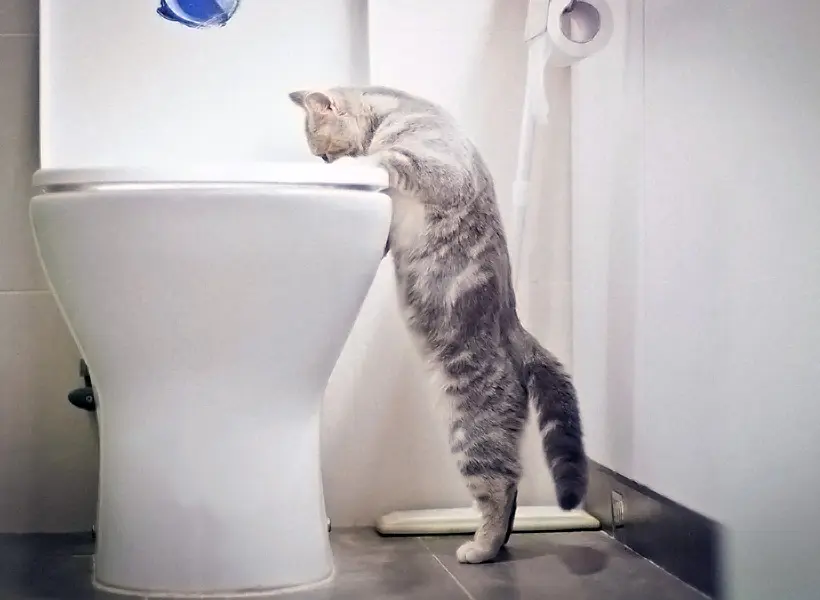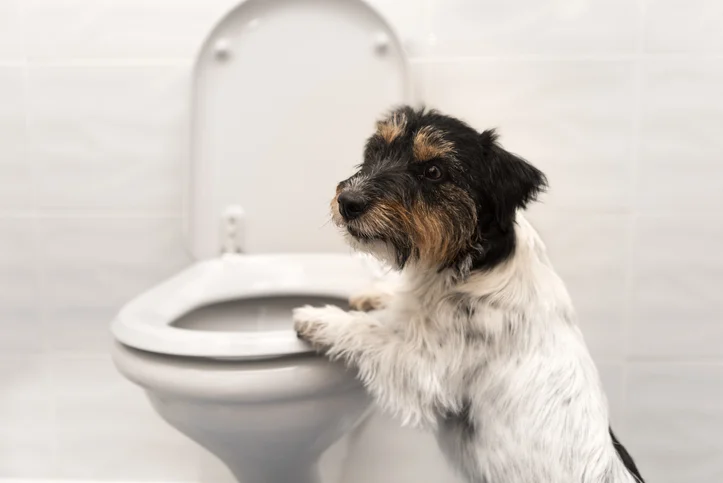Why Flushing Animal Waste Down the Toilet Could be Harmful
Why Flushing Animal Waste Down the Toilet Could be Harmful
Blog Article
Have you been on the lookout for content about Can You Flush Dog and Cat Poo Down the Toilet??

When it involves dealing with waste, specifically animal waste, lots of people frequently consider the convenient choice of flushing it down the commode. However, this seemingly simple remedy can have significant consequences for the environment and public health. In this post, we'll check out why flushing animal waste down the bathroom is a negative idea and supply different methods for proper disposal.
Introduction
Appropriate garbage disposal is essential for preserving environmental sustainability and public health. While it might appear harmless to purge animal waste down the bathroom, it can bring about different issues, both for the setting and human wellness.
Dangers of flushing pet waste
Ecological influence
Flushing pet waste introduces harmful microorganisms and microorganisms right into waterways, which can negatively influence aquatic ecosystems. These microorganisms can pollute water resources and harm marine life, interrupting delicate ecosystems.
Public health issues
Animal waste includes unsafe bacteria such as E. coli and Salmonella, which can posture serious health risks to human beings. Purging pet waste down the bathroom can pollute water supplies, resulting in the spread of diseases and infections.
Alternatives to flushing
As opposed to flushing pet waste down the bathroom, there are several different disposal methods that are much more eco-friendly and hygienic.
Composting
Composting animal waste is a green way to get rid of it. By composting, raw material is broken down right into nutrient-rich dirt, which can be utilized to fertilize gardens and plants.
Land fill disposal
Taking care of pet waste in a landfill is one more choice. While not as environmentally friendly as composting, it is a more secure choice to flushing, as it prevents the contamination of water resources.
Animal waste disposal systems
There are customized pet dog garbage disposal systems offered that securely and hygienically throw away animal waste. These systems typically utilize enzymes to break down waste and get rid of smells.
Steps to proper animal garbage disposal
To guarantee proper disposal of pet waste, follow these steps:
Scooping and landing waste
Regularly scoop and bag animal waste utilizing eco-friendly bags. This avoids waste from infecting the setting.
Using assigned waste containers
Dispose of bagged pet waste in marked waste containers, such as compost containers or land fill bins. Avoid flushing it down the toilet whatsoever prices.
Cleansing litter boxes and pet locations regularly
On a regular basis tidy can and animal locations to avoid the buildup of waste and microorganisms. Usage pet-safe cleaning products to maintain health.
Benefits of correct disposal approaches
Taking on appropriate disposal approaches for animal waste offers a number of advantages:
Decreased environmental pollution
Correct disposal methods minimize the risk of environmental pollution, securing rivers and environments from contamination
Decreased risk of water contamination.
By preventing flushing animal waste down the bathroom, the risk of water contamination is dramatically reduced, protecting public health.
Improved sanitation and health
Appropriate disposal techniques advertise much better sanitation and health, creating a more secure atmosphere for both humans and pets.
Conclusion
In conclusion, flushing animal waste down the commode is hazardous to the setting and public health. By adopting alternate disposal methods and adhering to appropriate waste administration practices, we can decrease the negative impact of pet waste and contribute to a cleaner, much healthier world.
What To Do With Dog Poo – The Do's And Don'ts Of Disposing Of Faeces
Dog poo bins
Some councils provide dedicated dog waste bins in popular dog-walking areas that can take dog poo that has been bagged but you can legally dispose of dog waste in any public litter bin, as long as it is securely bagged. This also applies to your wheelie bin at home.
Do not flush
Water companies do not recommend flushing dog faeces down the toilet because certain parasites can survive the water processing treatment and are potentially harmful to humans. You should also never consider flushing dog poo that has been bagged down the toilet as the bags will not break down and instead create severe blockages in the sewage system.
In the woods
The Forestry Commission promotes a ‘stick and flick’ method for dealing with waste in the woods. This means finding a stick and using it to flick any poo from off the path so that it is out of the way of other walkers. You could also bury it as long as it is not in an area where there might be livestock.
Livestock
Parasites found in dog poo can be transmitted to livestock if they inadvertently eat infected faeces that has been left on grazing land. This could result in the death of sheep or abortion in cattle so you should always make sure you pick up your dog’s waste in fields where livestock could be present.

On a regular basis tidy can and animal locations to avoid the buildup of waste and microorganisms. Usage pet-safe cleaning products to maintain health.
Benefits of correct disposal approaches
Taking on appropriate disposal approaches for animal waste offers a number of advantages:
Decreased environmental pollution
Correct disposal methods minimize the risk of environmental pollution, securing rivers and environments from contamination
Decreased risk of water contamination.
By preventing flushing animal waste down the bathroom, the risk of water contamination is dramatically reduced, protecting public health.
Improved sanitation and health
Appropriate disposal techniques advertise much better sanitation and health, creating a more secure atmosphere for both humans and pets.
Conclusion
In conclusion, flushing animal waste down the commode is hazardous to the setting and public health. By adopting alternate disposal methods and adhering to appropriate waste administration practices, we can decrease the negative impact of pet waste and contribute to a cleaner, much healthier world.
What To Do With Dog Poo – The Do's And Don'ts Of Disposing Of Faeces
Dog poo bins
Some councils provide dedicated dog waste bins in popular dog-walking areas that can take dog poo that has been bagged but you can legally dispose of dog waste in any public litter bin, as long as it is securely bagged. This also applies to your wheelie bin at home.
Do not flush
Water companies do not recommend flushing dog faeces down the toilet because certain parasites can survive the water processing treatment and are potentially harmful to humans. You should also never consider flushing dog poo that has been bagged down the toilet as the bags will not break down and instead create severe blockages in the sewage system.
In the woods
The Forestry Commission promotes a ‘stick and flick’ method for dealing with waste in the woods. This means finding a stick and using it to flick any poo from off the path so that it is out of the way of other walkers. You could also bury it as long as it is not in an area where there might be livestock.
Livestock
Parasites found in dog poo can be transmitted to livestock if they inadvertently eat infected faeces that has been left on grazing land. This could result in the death of sheep or abortion in cattle so you should always make sure you pick up your dog’s waste in fields where livestock could be present.

As a person who reads about Can You Flush Dog and Cat Poo Down the Toilet?, I think sharing that piece of content was a smart idea. Appreciated our write-up? Please quickly share it. Help others find it. Thank you so much for your time spent reading it.
Book Report this page